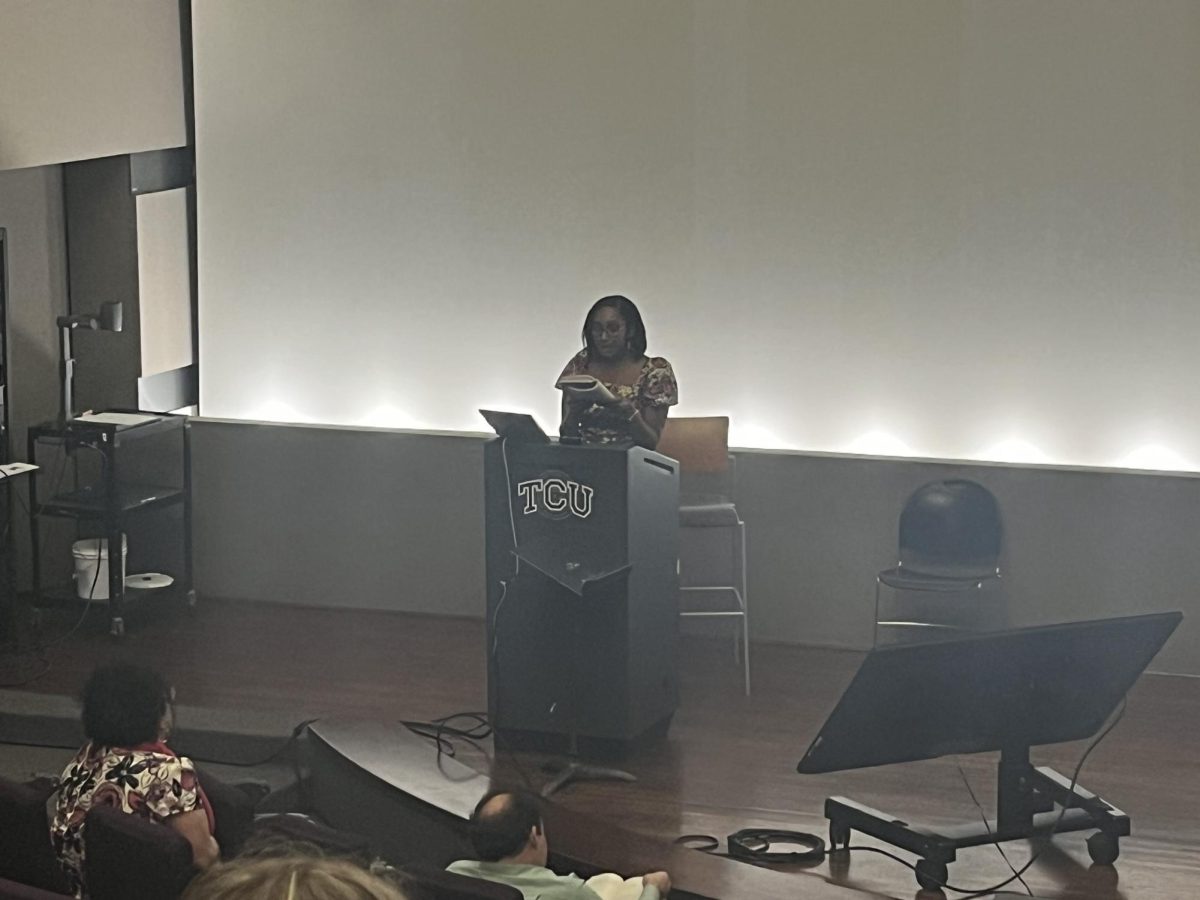If one talks to any TCU student or staff member about their experience at the university, the subject of future potential will inevitably come up. Maybe they will express excitement for the end results of big, multi-year construction projects around campus that will bring (and have already brought) a cutting-edge learning and living environment for students. Perhaps the conversation will turn to an eager anticipation of the upcoming football season, when hordes of purple-bleeding fans will clamor to see their Horned Frogs vault into the ranks of BCS victors, or even to the national championship itself.
Through these many conversations, there exists at TCU an unmistakable attitude of the collective membership in the university striding confidently into the future, embracing progress with every step. Perhaps, though, that collective mindset should carefully consider the nature of the path on which it walks and the path it traveled to arrive at the present. An understanding of TCU’s future is inextricably tied to the knowledge of its past. A simple daily walk around campus reveals pieces of that heritage.
What do Clark, Waits, Sadler, Moudy, Tucker and Colby have in common? Beside being buildings every student will see at least one of every day, they are also the names of historical TCU leaders. All of these leaders served as ministers in the Christian Church (Disciples of Christ), the denomination affiliated with the university. Beginning with Addison and Randolph Clark more than a century ago, many great leaders from the denomination worked tirelessly to ensure TCU’s progress, and their work has made it a thriving university today. Yet, a significant generation of prominent and direct leadership by the Disciples is ending, as the last Disciples chancellor ended his service in 1998, and longtime Director of Choral Activities and University Christian Church Choirmaster Ron Shirey passed away in 2009.
As the Disciples of Christ denomination follows the national trend of declining mainline Protestantism, it is not the tangible bonds between the Disciples and TCU that hold strong as they once could. Intangibly however, the Disciples’ belief in fostering learning in all its followers and a spirit of discernment honed by a pursuit of truth resonates strongly with the university’s mission to educate its students to be “ethical leaders and responsible citizens.”
Even as TCU strives to act in the global community, so does the Disciples of Christ denomination, as its current mission statement expresses a desire to be “a movement for wholeness in a fragmented world.” The Disciples’ ethos still holds its roots. Many staff members and professors attend worship at University Christian Church, Disciples students stay active in many TCU activities and the steeple of Robert Carr Chapel and Brite Divinity School, still the highest point on campus, thrusts upward into the beautiful Texas spring sky.
Where does TCU go from here? The university must realize its fundamental resonance with the mission of the Disciples of Christ denomination and embrace the intangible bonds it shares. An ocean away, Shanghai urban planner Ruan Yisan speaks of a rapidly modernizing China that seeks the cutting edge when he says, “There is nothing wrong with improving people’s lives, but we should not throw our heritage away like a pair of old shoes.”
TCU should draw from that lesson and don the shoes of its heritage to stride confidently into the future. When looking at the statues of Addison and Randolph Clark, the hardy frontier Disciples ministers of old, notice that they too are walking forward. Do so with them.
Pearce Edwards is a freshman political science major from Albuquerque, N.M.




